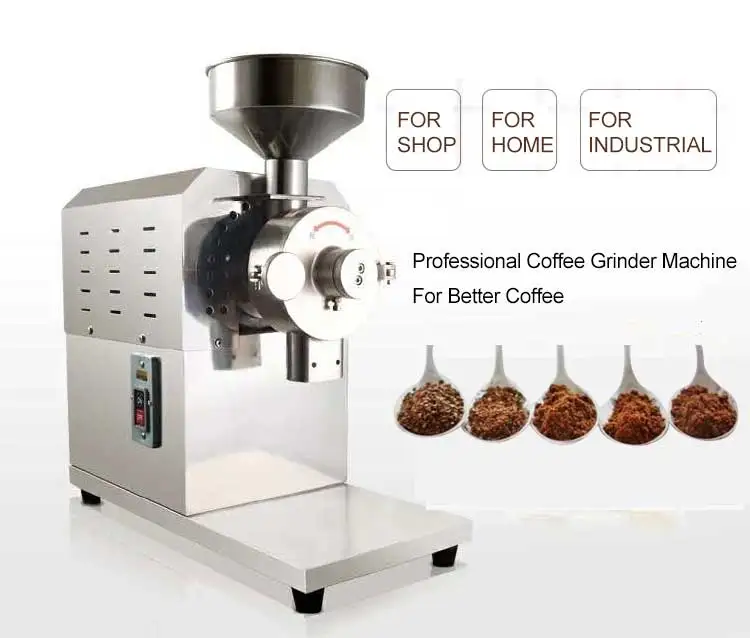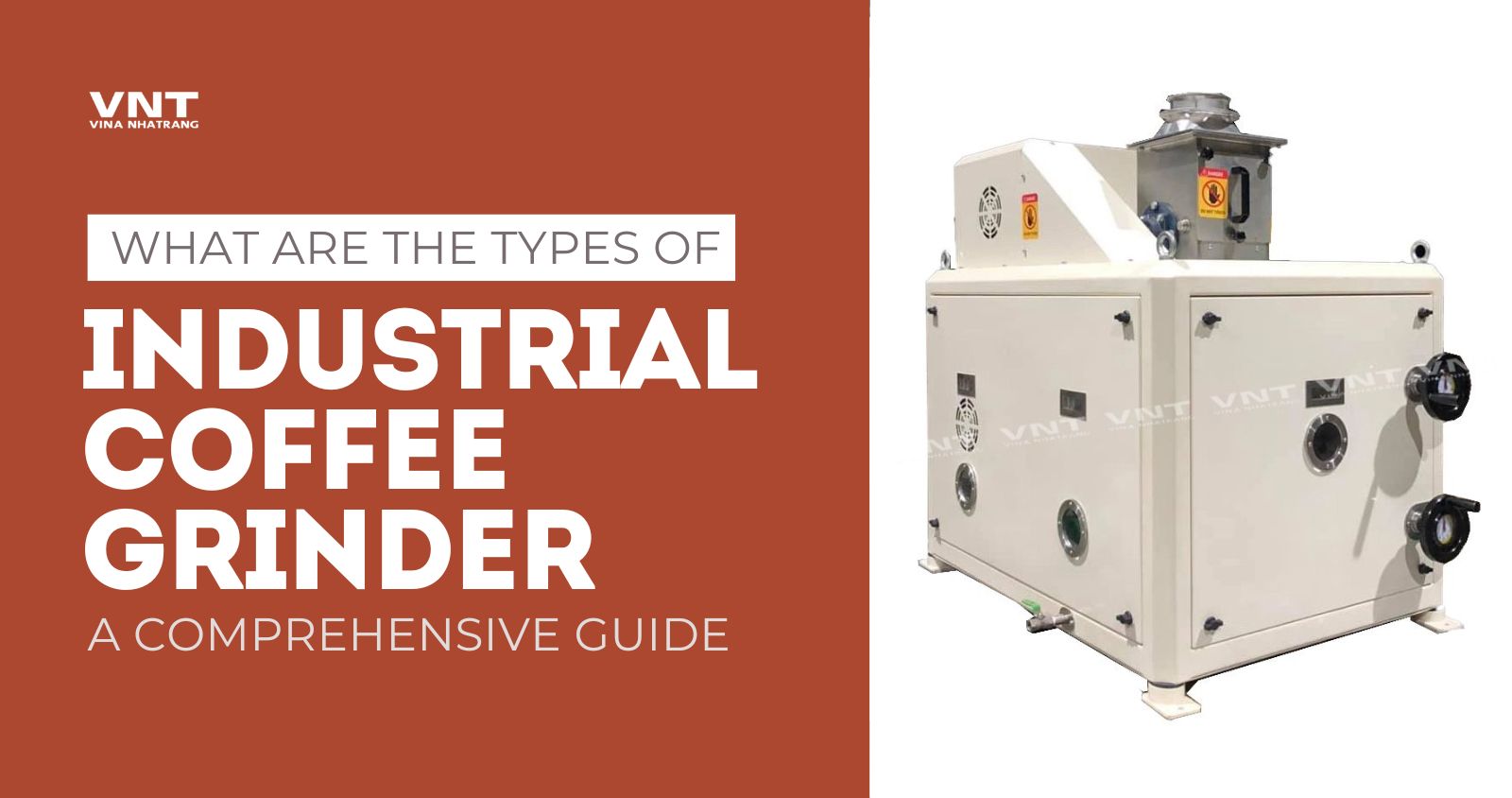How to Select the Perfect Industrial Coffee Grinder for Your Organization
Choosing the perfect commercial coffee grinder for your business is a diverse decision that calls for careful factor to consider of several critical aspects. It is important to review your certain grinding needs, consisting of the volume of coffee processed and the wanted grind uniformity, as these elements straight influence flavor and client complete satisfaction. In addition, comprehending the various sorts of mills available can substantially influence your operational performance. As you navigate these considerations, one have to also consider the implications of spending plan and upkeep. What other aspects could make or damage your choice?
Assess Your Grinding Demands
When selecting an industrial coffee grinder, one should first examine their grinding demands to make certain optimum performance and uniformity. This initial evaluation involves understanding the volume of coffee to be processed daily, as well as the desired grind size for various brewing methods. A high-capacity mill might be essential for businesses offering huge amounts of coffee, while smaller sized operations may discover a more small design adequate.
Moreover, it is important to think about the sorts of coffee beans being utilized, as different beans might call for certain grinding methods to achieve the most effective taste account. Oily beans might demand a grinder developed to handle such characteristics without overheating or clumping.
Specialty coffee services often demand exact work sizes to improve removal and taste, making it important to select a mill that can deliver uniform results. Examining the readily available space and electric demands will certainly assist in picking a mill that fits perfectly into your operational process.
Understand Mill Kind
Recognizing the numerous kinds of industrial coffee mills is crucial for making an informed choice that satisfies details operational requirements. There are mainly two classifications of mills: blade grinders and burr grinders.
Blade grinders utilize spinning blades to chop the coffee beans, leading to an inconsistent grind size - Industrial Coffee Grinder. While they may be more inexpensive, they are commonly not ideal for business applications where accuracy is necessary
On the other hand, burr grinders offer a more uniform work by crushing the beans in between two surfaces. They can be further classified right into level burr and conelike burr grinders. Flat burr grinders provide a constant work size and are normally preferred for espresso prep work, while conelike burr grinders are versatile and can handle a series of mixture techniques, from espresso to French press.
When selecting a mill, take into consideration the certain needs of your business, consisting of preferred grind uniformity, manufacturing volume, and the types of coffee drinks you prepare to provide - Industrial Coffee Grinder. Each mill kind has its advantages and restrictions, so comprehending these nuances makes it possible for informed decision-making that aligns with functional goals
Evaluate Work Dimension Uniformity
Attaining grind dimension consistency is essential for generating high-grade coffee, as variations in fragment size can significantly affect extraction and taste. When selecting a commercial coffee mill, it is vital to evaluate just how well the machine keeps uniformity in grind dimension across various sets. Inconsistent work sizes can this website cause uneven extraction, causing a cup that might taste extremely bitter or weak.
To analyze grind dimension uniformity, consider mills with attributes such as adjustable grind setups and high-quality burrs. Burr grinders, specifically, master creating consistent particle sizes compared to blade mills. The product and shape of the burrs play a crucial duty, with stainless steel and ceramic choices offering longevity and precision.

Consider Production Capacity
In the fast-paced world of coffee production, considering production capacity is critical for companies aiming to meet demand without sacrificing high quality. The production capability of an industrial coffee grinder directly affects a firm's capacity to accomplish orders successfully, take care of stock, and react to changing market patterns.
When evaluating production capacity, it is important to evaluate the mill's result rate, usually measured in pounds per hour. This dimension must line up with your company's projected sales quantity and growth targets. A café with a high turn over may require a mill that can process numerous hundred extra pounds daily, while a smaller procedure might suffice with a reduced capacity version.
Furthermore, consider the kind of coffee being processed. Various beans and blends may influence grinding speed and performance, requiring a grinder with the ability of handling varied production demands. It's also worth considering the grinder's capacity to preserve regular high quality under high result conditions, as any kind of fluctuations can influence the final item.
Eventually, selecting a grinder that matches your organization's production ability will guarantee you continue to be competitive and receptive to consumer assumptions.

Budget and Upkeep Elements
When assessing the appropriate industrial coffee budget plan, mill and maintenance factors play a substantial role in you can try here the general decision-making procedure. A first financial investment in a top quality mill can generate long-term advantages, yet it's important to establish a clear budget that straightens with your company's operational requirements. Think about both the acquisition cost and possible functional prices, such as power intake and substitute components.
Industrial coffee grinders need routine upkeep to make certain ideal performance and longevity. Review the maker's suggestions for maintenance, consisting of cleaning timetables and components replacement, as these will certainly impact long-term functional expenses.

Purchasing a grinder that is sturdy Recommended Site yet simple to keep can save cash in time. While lower-priced alternatives may be alluring, they may sustain higher maintenance prices and decreased performance. Ultimately, stabilizing initial expenses with lasting maintenance and functional efficiency will lead you to the best selection for your business's coffee grinding requirements.
Verdict
Choosing the excellent commercial coffee mill necessitates a comprehensive examination of grinding requirements, grinder types, grind size consistency, production capacity, and budgetary considerations. A well-chosen mill not just boosts the top quality of the coffee generated however likewise contributes to the general success and earnings of the business.
Specialty coffee companies typically demand accurate grind dimensions to boost removal and flavor, making it vital to choose a mill that can provide uniform results. Apartment burr mills provide a consistent work dimension and are commonly preferred for espresso preparation, while conelike burr grinders are versatile and can handle an array of brew methods, from coffee to French press.
When choosing an industrial coffee mill, it is vital to examine how well the equipment preserves uniformity in work size across various batches. Burr mills, in specific, succeed in creating uniform fragment sizes contrasted to blade grinders.Selecting the excellent commercial coffee grinder demands an extensive assessment of grinding demands, grinder kinds, grind size uniformity, production ability, and monetary factors to consider.